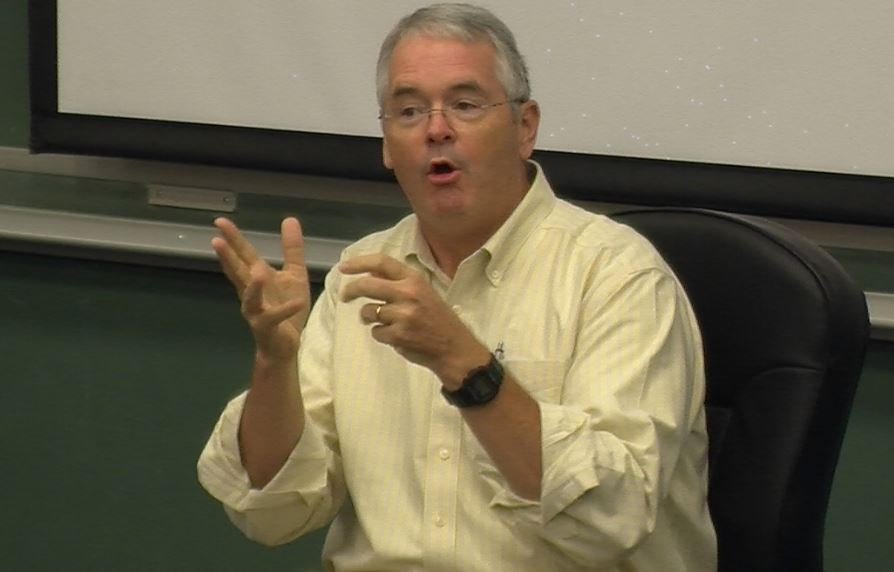
USAID hard-liners scuttled plan to free Gross, says ex-Kerry aide
Negotiations between the U.S. and Cuba aimed at gaining Alan Gross’ release were scuttled by “die-hard USAID officials” four years ago, a former Senate aide to John Kerry told Newsweek magazine.
Fulton Armstrong, who was a Latin American specialist at the Central Intelligence Agency and the White House before joining Kerry’s staff on the Senate Foreign Relations Committee in 2010, said that the Obama administration was not briefed on the USAID’s “regime-change” programs involving Cuba and that “the secret operations continued just as they had under Bush-Cheney — aggressive, over-funded, and in obvious need of oversight and review.”
Alan Gross was arrested in Havana on Dec. 3, 2009, and charged with taking sophisticated and illegal communications equipment into Cuba, presumably for subversive purposes. He was sentenced to 15 years in prison. [For background on his present status, click here.]
“When Gross was arrested, Cuban officials gave pretty clear signals of two desires for his release,” Armstrong told Newsweek. “That the [regime-change] programs be made less blatant and insulting to them, and that the Obama administration designate a serious, non-bureaucratic person to discuss this and other matters with them.”
[http://www.cubadebate.cu/noticias/2011/12/27/asesor-del-senado-de-eeuu-pide-eliminar-programas-de-subversion-contra-cuba/]
Leaders of the Senate Foreign Relations Committee and the House Foreign Affairs Committee agreed with USAID and the State Department to tone down some of the USAID’s more aggressive programs against Cuba, Armstrong told Newsweek, improving the chances for Gross’ release.
“Senior USAID and State officials were happy with the reforms as good for the programs as well as for gaining the release of Alan Gross, and they asked Senate and House Committee staff to brief Cuban officials on them,” Armstrong said. “We did so, and our chairmen [Kerry and Rep. Howard Berman] met with senior Cuban officials to drive home the message.”
The Cubans “responded very positively and said that the cleanup – which they understood would be done in phases – would certainly help them make the case for expedited procedures for Gross’s release.”
But hard-line USAID officials ruined the deal by telling their assets in Cuba to continue their subversive work.
“They reassured their contractors and grantees that, despite rumors of change, business would continue as usual — information that would surely reach Cuban ears — and they later leaked to the press that, in fact, program funding remained unchanged and the reforms were not being implemented,” Armstrong told Newsweek.
The Cuban-American lobby in Washington also stepped in, pressuring Obama to roll back most of the changes.
“At that point, the discussions about program reforms to gain Gross’s release ended,” Armstrong said.
A report published in December 2012 in the magazine Foreign Affairs had said that Kerry met in secret with Cuba’s foreign minister, Bruno Rodríguez, in October 2012, in an effort to gain Gross’ release. The meeting was held at the New York City residence of Cuba’s ambassador to the United Nations.
“There was no quid pro quo, but the meeting seemed to reassure the Cubans that the democracy programs would change, and the Cubans expressed confidence that Gross would receive a humanitarian release after his trial, which was scheduled for March,” the article said.
Foreign Affairs quoted Armstrong as telling the Cubans that the USAID’s regime-change programs “are stupid. We’re cleaning them up. Just give us time, because politically we can’t kill them. We asked them, ‘Will this help you release Alan Gross?’ And the answer was Yes.”
The article summarized the situation by saying that, eventually, “the United States appeared to step back from an opportunity to free Gross from jail and strike a blow against the antiquated politics of the Cold War. […] The Cuban-American lobby had won.”

